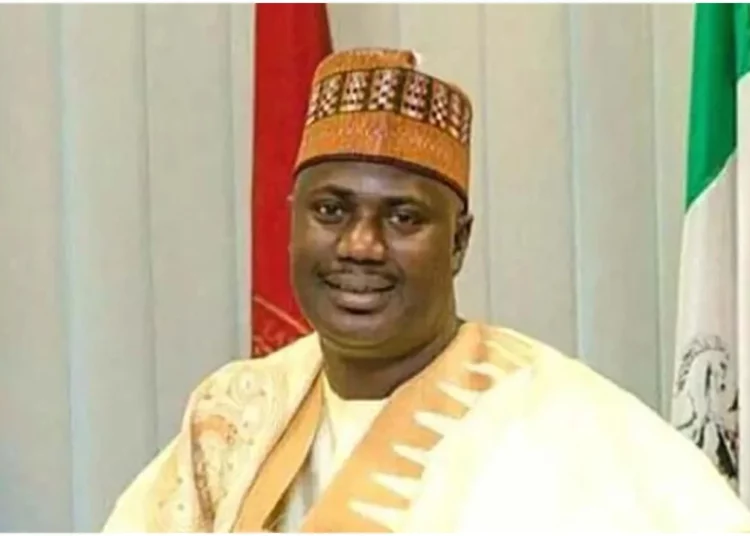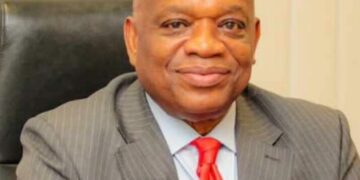The minister of State for Agriculture, Senator Aliyu Sabi Abdullahi, has expressed concern over the rising poverty rate in northern Nigeria, despite an overall increase in the country’s GDP.
Senator Sabi who stated this in his remarks at the 17th Pre-AGA Lecture of ABU Alumni Association held at the Ahmadu Bello University (ABU) Zaria, also advocated for proactive measures to address northern challenges.
Speaking on the theme: “Hunger and Economic Hardship: A Call to Return to Our Roots and Embrace Innovative Agricultural Solutions,” the minister who was represented by the executive secretary, Agricultural Research Council of Nigeria (ARCN), Prof. Garba Hamidu Sharubutu, criticised the region’s lack of planning for future generations.
He noted that while Nigeria’s GDP per capital rose by approximately 19 per cent, the growth has not translated into improved living conditions for many northerners, asserting that the poverty rate worsened when northerners were in power.
The minister also highlighted alarming statistics from UNICEF, revealing that in 2021, 1,440 children were abducted and 16 were killed in 25 attacks on schools, leading to the closure of 618 schools across six northern states.
He said, “The displacement of over 2 million persons from several disasters of flooding and bandits’ attacks had jeopardized and made over 1 million children to miss schools. The number of children killed due to these conflicts is in the range of 350,000; an average of 170 children dying every day due to the violence and its indirect effects such as lack of access to food, health facilities, shelter and clean water. The death toll is projected to reach 1.1 million by 2030 if nothing is urgently done.
“The North was known for massive agriculture as the foundation of wealth and prosperity. States in the North were known for cash and food crops such as ginger, groundnut, soyabean, sesame, cotton, beans, rice, maize, cowpea, sorghum, yams, potatoes, tomatoes, onions and water melon among others.
“The north held the position of Africa’s largest livestock population with 19.5 million cattle, 72.5 million goats, 41.3 million sheep, 28,000 camels, 145 million chickens, 1.2 million turkeys and 947,499 donkeys.
“The reasons and causes of the stark realities of northern Nigeria are subject of various discussions, research, and studies. But suffice it to state that many reasons have been summarized as follows: historical context which disadvantaged the north in the area of trade and western education; economic structure that is dependent on the agricultural sector which is often subsistence based; education and human capital development showed the north grossly lacking behind; governance and corruption; insecurity has destabilized the region; conflicts of interest due to ethnic and religious diversity and the vexed issue of Federal allocation and resource control.
“But why is this so? Why must it continue to be this way? In examining these questions, let’s look at this assessment: the official figure shows that the poverty rate in Nigeria between 1980 and 2010 rose by 153.6 percent. The equivalent number of poor people rose from 39.2 million to 112.47 million.
“This is despite a rise in the country’s GDP per capital by roughly 19 percent. Unfortunately, the increase in poverty is contributed by northern part of the country. Further analysis showed that the period in which this poverty increased occurred when Northerners were leading the country!!!
“Factors that made the North this backward are known and have been variously discussed. My intent here is to remind us of some factual realities that need our urgent attention. In this regard, I intend to focus on issues that align to our return to basics. The bare foundation upon which our founding fathers depended and upon which they became our legends.”
Earlier in his remarks, the vice chancellor, ABU Zaria Prof. Kabiru Bala emphasized the urgent need for Alumni engagement to support the university and address the broader challenges facing education and agriculture in Nigeria.
Prof. Bala disclosed that the school is currently under threat of power disconnections due to a bill of N310 million per month which the school cannot sustain. He called on the alumni to ensure that they give back to their institution at all times so as to be able to overcome its challenges.
In an interview with newsmen shortly after the event, the President World-wide of Ahmadu Bello University Alumni Association, Malam Adamu Mamman Kontagora, described the choice of the theme as apt noting that Nigerians are passing through hard times.
He appealed for more innovative agricultural solutions as a panacea to food insecurity while assuring ABU that the alumni would always do everything within their power to contribute their quota to the school.





